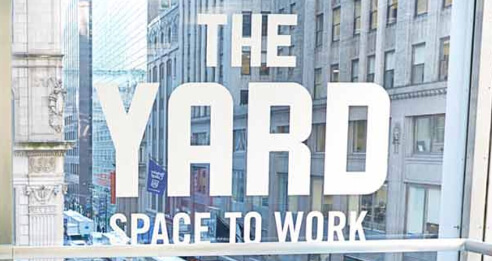
Largest Coworking Companies


As the popularity of coworking spaces rises, the amount of interested and current owners looking to see the risks that come with owning it has risen as well. This comes as no surprise, as like all businesses or investments, everything has its own risk — and coworking spaces are certainly no exception. On that note, let’s look at 5 risks that current and aspiring owners can keep in mind to help them maintain a coworking space that thrives and flourishes.
With the World Economic Forum’s report stating cyber attacks are the third biggest risk to global instability, it seems that working in an open space and sharing WiFi with dozens of other businesses is a data breach waiting to happen. Given that WiFi connection is one of the most important services a coworking space has to offer, it makes sense to value and protect the security of not just your own business’ data, but that of your clients as well. After all, your clients want to be sure that their confidential information won’t be available to competitors or cybercriminals trying to breach your network.
Not only can a data breach ruin a coworking space’s reputation, it could also lead to a liability lawsuit. To minimize the problem, Marcus’ guide to cybersecurity basics recommends ensuring that all computer operating systems and other technology are up-to-date, and to create strong passwords for WiFi connections that are changed every few days. Also, put up some security protocols in the event of a breach, and try to spread awareness about cybersecurity around your clients. While you can only take so many steps towards cybersecurity for your clients, being aware of the basics and doing the little things can go a long way.
Understand that you can’t control what all your clients do — but you can do your best to prevent unwelcome actions from happening in your coworking space, such as theft. In an environment where many different types of businesses work and there is a constant stream of people coming in and out of the space, the risk of theft in a coworking space is higher than that of a traditional office.
While the type of theft can depend on the packages or membership they purchase, it’s still best to ensure all your clients’ belongings are protected. For instance, offer secure lockers where clients can place their items, and install cameras in the room to keep track of every angle. Having security measures in place can deter certain situations and is crucial to ensure a positive and safe working environment for your clients.
Co-founder of Kisi, Max Scheutz, points out that access management is often overlooked, but there are many dangers that come with it. Ask yourself, what do you use to manage access to your coworking space? Key fobs, key cards, or mobile devices? It’s important to tackle exactly how you grant and withdraw access to your space, since former clients who still have access can pose a great risk. These clients can enter without notice, or even come in and steal equipment from current clients.
That being said, granting and revoking access at the right times is crucial. We recommend synchronizing your coworking space software with your access system so that any new and former clients’ access can be granted and revoked at any time. If you go with key cards or key fobs, it’s also wise to have a process or protocol to follow when new or old tenants join the coworking space.
Coworking Space Management Guide
A comprehensive guide to help you manage your coworking space.
DownloadDeveloping and fostering a community in a coworking space is what brings real value to many coworking members — some clients even make this a deal-breaker. Some startups and entrepreneurs now expect events from your clients and outsiders alike that they can all attend in order to network, making it your job to get your clients on the list of invitees. Greetly points out plenty of events that could be hosted at coworking spaces, such as happy hour, family events, and even donation drives.
Hosting a variety of events comes with its own risks. For instance, if you want to provide classes or workshops, making sure the class provider is experienced is a basic due diligence task that shouldn’t be overlooked. Even the coffee machines in the space can pose a risk, making it necessary for owners to consider the maintenance and testing of them as well. Either way, any benefits that can foster the community and encourage inclusivity have to be planned and organized thoroughly in order to avoid mishaps and concerns.
While keeping up with the latest trends is beneficial for a business, one of the top coworking space challenges is how easy it is to be side-tracked by popular industry trends. For instance, it may seem cool to get a trendy looking sofa, but if it sacrifices comfort, then it could hurt the productivity of your clients. While such an instance may be great for photos and social media marketing, having unnecessary purchases such as popcorn or soda machines that don’t increase a client’s productivity and could ultimately hurt the space.
When purchasing items, consider whether or not it could benefit a member and avoid adding flashy or distracting purchases. Instead, try to lean towards buying practical additions by thinking about what your members might need, such as a child-friendly space, a gym, or even a 3D printer.
Save your community manager 41 hours each week—learn how The Yard did it with cloud-based access control.
Read the Case StudyThe Guide to Make Your Space More Profitable
Including interviews with experts and consultants.
Free access to our best guides, industry insights and more.
